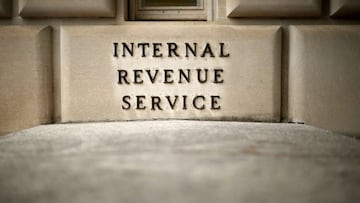Coronavirus stimulus check: do I have to pay it back and is it taxable?
The US government is sending millions of $1,200 stimulus payments to help Americans during the Covid-19 pandemic, but does it need to be paid back or taxed?

Starting in mid-April the United States' Internal Revenue Service (IRS) has been sending stimulus check payments to eligible citizens to help them financially through the coronavirus pandemic. As of Friday more than 80 million checks had been paid out with a total of 150 million expected to be paid out.
Many citizens receiving the stimulus payment however have been concerned that they might either need to pay all or part of it back, or that it may be taxable, reducing its value, and meaning that it would be prudent not to spend all of it right now.
IRS confirms the stimulus check is not taxable
On their Economic Impact Payment - the official name for the stimulus payments under the Coronavirus Aid, Relief, and Economic Security Act (CARES Act) - the IRS directly answers the question of whether the payment should be included in your gross income for tax purposes.
"No, the Payment is not includible in your gross income. Therefore, you will not include the Payment in your taxable income on your Federal income tax return or pay income tax on your Payment."
The good news then is that the payment will not reduce your refund or increase the amount you owe when you file your 2020 Federal income tax return.
It also won't change your tax bracket, meaning your rate of tax is unaffected by the stimulus payment.
What's more it is not taken into account when determining an individual's eligibility for federal government assistance or benefit programs.
Even if you owe money to the IRS or have other federal or state debts the payment won't be used to offset those amounts. There is one exception, if you have past-due child support, in which case the Bureau of the Fiscal Service will send you a notice to tell you about the offset.
More than 150 million Economic Impact Payments will be sent out to Americans by #IRS. If you have questions about your payments, please check the FAQs at https://t.co/BN5DT3sgye #COVIDreliefIRS pic.twitter.com/ORF5OBA5tx
— IRSnews (@IRSnews) May 3, 2020
Will I have to pay the coronavirus stimulus payment back?
No. There's no question about this, despite a host of misleading or downright false posts on social media claiming you have to. It's not a loan from the government or IRS, it's your money to do with what you want.
Some of the confusion has arisen because of the technical way in which the IRS is making the payment. They are treating it as a refund of a 2020 tax credit, paid right now (because it's needed right now due to the Covid-19 pandemic). But the reality is, it's an outright payment to eligible individuals that isn't taxable, doesn't affect any other tax refunds due, and, we stress again, doesn't have to be repaid.
Stimulus payment is a tax credit for 2020 tax season
The fact the payment is technically a tax credit does however mean that someone who has not qualified for the payment at the moment may still be eligible if their earnings come in under the $75,000/$150,000 income threshold for 2020.
Related stories
Furthermore, if someone made below the threshold for 2018, and received the stimulus payment on that basis, and then their 2019 earnings when filed (by July 15) exceeded the threshold it is not expected that the IRS are planning to claw the stimulus payment back.

